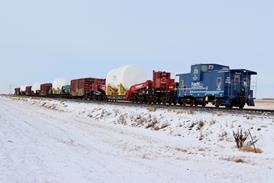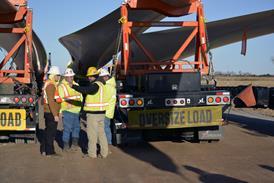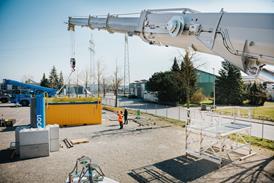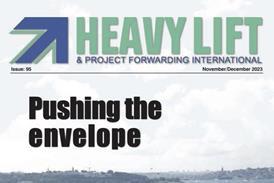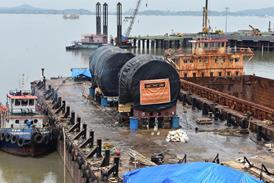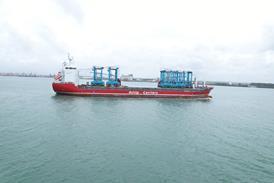November 10 - In its latest financial results, TBS International has reported that its equity in the eyes of its lenders has 'no value' leaving uncertainty over the company's future in light of its ongoing difficulties in complying with all financial cove
The question would appear to be what will happen if the company fails to source additional funding before December 15 to make principal repayments on its loans.
In its press release, TBS International explained that it had sold three ships, two tweendeckers and one regular bulker, for a total price of USD16 million in the past three weeks to free up cash to reduce debt, explaining that negotiations with lenders will require the further sale of vessels.
These comments came as the Nasdaq-listed tweendecker and dry bulk shipping company unveiled a third quarter net loss of USD21.2 million, more than twice that of the third quarter 2010.
Readers will recall that in September TBS secured another stay of execution, when its lenders agreed not to enforce their loans; at least the fourth reprieve from lenders since 2010.
Ferdinand V. Lepere, senior executive vice president and chief financial officer, commented: "TBS' results for the third quarter 2011 reflect the weakness in the global marketplace for the transportation of dry bulk cargo, along with the over-supply of dry bulk vessels which continues to have an adverse effect on freight rates and the continued high cost of fuel. During the third quarter 2011, revenues decreased by 4.1 percent, compared to the same period in 2010.
"The Company was not in compliance with all financial covenants relating to its debt at September 30, 2011. We have classified the entire amount of outstanding debt as a current liability in the consolidated balance sheet at September 30, 2011, in accordance with U.S. GAAP.
"As previously announced, on September 7, 2011, we entered into Forbearance Agreements with all lenders under our various credit facilities. The Forbearance Agreements terminate on the earlier of: (i) December 15, 2011 or (ii) the date that the Company fails to comply with any of the terms or undertakings of the Forbearance Agreements and the related credit agreements, as amended, including events of default not identified above. During this negotiation period, we will continue to operate our business as usual, although we did not make the principal payments due September 30, 2011 on such facilities.
"During this forbearance period, the Company and its lenders have been discussing a variety of matters, including the restructuring of our indebtedness and the sale of certain vessels. While our discussions with our lenders have not reached the stage where the terms of a restructuring have been agreed upon, we believe that the lenders would not accept that our common equity has any value and, therefore, would not agree to a restructuring in which any value were attributed to our common equity.
"Even if the Company is successful in restructuring scheduled principal amounts or the Forbearance Agreements are extended, the Company will still need to raise additional funds to facilitate principal repayments subsequent to December 15, 2011, and to remain in compliance with the minimum cash liquidity covenant or other covenants under its credit facilities. As a result, there continues to be substantial doubt about the company's ability to continue as a going concern.
"On October 19, 2011, we entered into agreements to sell two vessels for an aggregate net sales price of USD11.2 million. On October 31, 2011, we agreed to sell an additional vessel for a net sales price of USD4.8 million. Proceeds from these sales will be utilised to reduce the company's debt obligations.
Excluding the vessels which have been sold, the TBS fleet now comprises 49 ships with an aggregate of 1.5 million dwt tons, consisting of 28 tweendeckers and 21 handysize/handymax bulk carriers.
In what some might see as a bizarre conclusion to its press release, given the negative tone of much of the content, TBS said that it remains committed to expanding its fleet, although it did qualify that statement by saying that this would require a significant change in global economic conditions, and that the company has temporarily suspended any further acquisitions of secondhand vessels.

